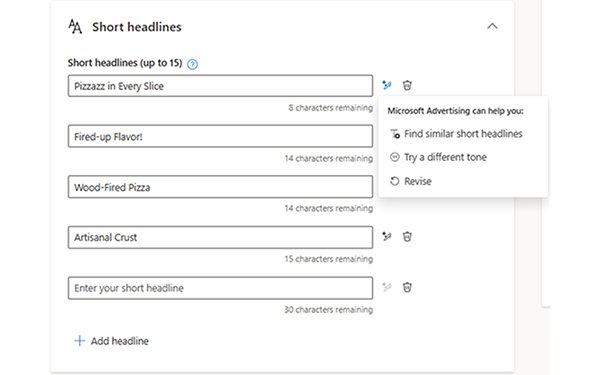
Agents and conversational AI are changing the way consumers find
information and interact with brands. With the rise of conversational AI search formats, search-engine traffic is shifting, creating new opportunities for advertisers and consumers.
Microsoft Advertising has released internal data, which shows that AI-powered ads deliver 25% higher relevance compared with traditional search, and that Copilot ad conversions have increased by
1.3x across all ad types since the November 2024 relaunch.
The data, released on Wednesday, is intended to encourage advertisers to move past experimentation into execution. It also shows that
40% of users say well-placed AI-powered ads enhance their online experience.
The company is attempting to teach advertisers how to generate variations of ad copy or fine-tune details of an
image. However, all this relies on effective prompting to tap into AI’s creative power while remaining authentic.
advertisement
advertisement
Better prompts lead to advanced campaigns, and marketers who practice
this strategy already see this. A significant 85% of marketers using generative AI say it
has improved productivity across content and ad creation.
They have explored different skills, from specialized prompts to the ways that inclusive prompting can sharpen copywriting,
image and video creation.
Through these techniques, brands have begun to cut down the time it takes to generate ad copy and test creative. They are launching ads in multiple languages using
AI-powered localization, eliminating traditional translation delays.
Features such as Copilot in Microsoft Advertising Platform’s “Try a Different Tone” offer real-world
applications more rapidly. This tool enables marketers to generate multiple versions of messaging and test them in seconds. The benefits for advertisers offer more than speed and include improved
cross-functional team collaboration, and expanding creative input without slowing down production.
It also requires brands to adopt real strategies around transparency and ethics by clearly
communicating to consumers and customers how AI is being used, what data is collected, and how it benefits people.
Guidelines for AI transparency to consider include clearly disclosing when AI
is part of the ad experience; maintaining human oversight to ensure tone, accuracy, and brand fit; and publishing clear data policies that address privacy, usage, and customer benefits.
A study from Resolve reveals what people want from search that is driving a shift in how users find information
online.
Findings from the 1,000-person survey provide insight into why users second-guess top search results, how they supplement searches with new tools, and what makes a result worth
clicking on.
The Resolve study found that 45% of users skip results they believe lead to AI-generated or formulaic content, 41% use AI tools like ChatGPT for
clearer answers with 1 in 3 saying they now rely on it for search.
Some 86% say Google’s results can sometimes feel repetitive, and 34% now find it
frustrating. About 61% leave top results if they don’t answer their question quickly, and 74% prefer content from expert sources or trusted sites over polished,
optimized pieces.